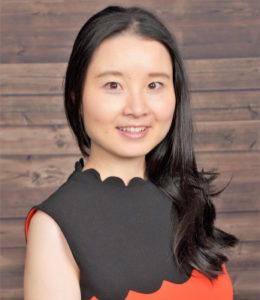In a special weekly series, the College of Liberal Arts is featuring a faculty member from one of our 13 departments. We asked questions about why they are passionate about the subjects they study and teach, and how they found their path to CSU. See all “Faculty Friday” features here.

Hongyan Xiang
Assistant Professor, Department of History
Hongyan Xiang joined the CSU Department of History in 2014. This is her first teaching appointment after completing her Ph.D. at Pennsylvania State University, and she feels lucky that the job search fit her research perfectly.
Xiang studies French Catholic missionaries in modern and early modern China. She was drawn to the topic in her first year of her master’s program. She was surprised to learn that there were, and still are, many Christians in China, despite never meeting a Christian while growing up in Wuhan. Before her university studies, Xiang had not met anyone who identified themselves as Christian.
As she studied more about the topic, she found the stories of French Catholic missionaries fascinating. For missionaries on the earliest missions, it would take them half a year just to get to China. They did not have strong language skills and there was very little exposure to Western culture. It would have been a huge cultural shock. But they had a mission to convert Chinese people to Christianity, so they overcame those obstacles.
Although her research focuses on China, Xiang really enjoys teaching her Modern Japan class. It is a relatively new class and Xiang enjoys that she and her students are exploring the subject for the first time together.
Xiang did not set out to be a professor. Like many students, she didn’t have a specific dream job growing up, but she always wanted to be useful and contribute something to her community. And she enjoyed learning a lot. These two desires – to be useful and to learn – find harmony as a professor at CSU.
Xiang really enjoys getting to help her students and she wishes more would come to her office hours. Xiang thinks students would be surprised to learn that she is not Han Chinese, but part of an ethnic minority in China called Tujia.